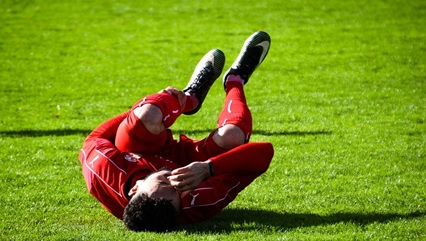
Achilles Tendon Pain: How You Should Take Care Of It
Intense and continuous physical activity can cause inflammation in your Achilles tendon. The Achilles tendon connects your heel bone to your calf muscles. Under normal circumstances, you use this tendon to walk, run, stand, and jump.
Achilles tendon pain comes in many forms, varying in intensity, inflammation, and where the rupture occurs. The most common form of Achilles tendon pain is Achilles tendonitis and Achilles tendinosis.
What Happens During Achilles Tendonitis?
The Achilles tendon is the longest and the largest tendon in the human body. This tendon—like all other tendons—needs to provide constant support to the bones and muscles. However, the Achilles tendon can only exert and stretch itself so far. If overexerted, the tendon will become inflamed, or even tear.
The following are the two kinds of Achilles tendonitis:
- Insertional Achilles tendonitis: This affects the Achilles tendon right where it attaches with the heel bone.
- Noninsertional Achilles tendonitis: This condition affects the fiber at the center of the tendon and usually affects younger, more active people.
Achilles tendonitis mostly affects athletes—especially runners—or people who are involved in sports that require frequent movement, pauses and warm-ups.
What Happens During Achilles Tendonosis?
Achilles tendinosis involves the patient experiencing chronic pain, along with a degenerating tendon. The degenerating tendon might be the result of untreated tendonitis.
In Achilles tendinosis, the collagen fibers at the center of the tendon can break down or deteriorate. This can not only cause immense pain in the tendon, but might also form scar tissues.
Taking Care Of Your Affected Achilles Tendon
Minor to moderate Achilles tendon injuries can heal by themselves. You can speed up the healing process by applying the following strategies:
- Rest your leg and avoid putting weight on it. You might need crutches.
- Ice the injury for at least 20 minutes.
- Compress the swelling by tying an elastic bandage over it.
- Keep your leg elevated. You can put together make-shift support with pillows for when you’re lying down or sitting.
- Anti-inflammatory drugs help manage the pain and swelling.
- You can also try a few strengthening and stretching exercises as recommended by your healthcare provider.
If you’re looking for an expert opinion from a podiatric specialist for your Achilles tendon injuries in Miami, you can get in touch with us at Foot & Ankle Institute Miami Beach. We provide effective treatments for fungal infections, ingrown nails, heel pain, warts, and painful foot and ankle deformities.